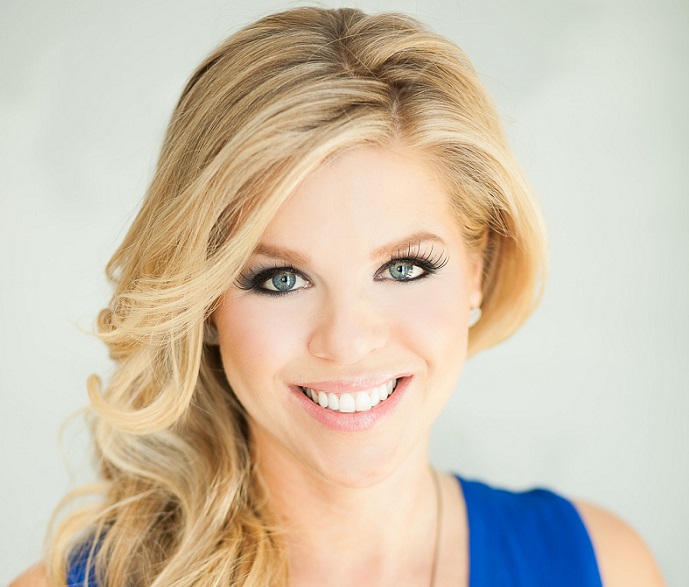By Jane Applegate
Jayna Cooke lived and worked in the fast lane doing business development and sales for two high-tech start-ups. Now, she spends most days in her spare bedroom, sorting and pricing donated, high-end clothing and accessories. Rather than moving to another fast-paced company, Jayna, who is in her early 30’s, decided to take a break and set up her own charity.
Cooke, the former vice president of business development at Groupon, launched Closet Angels, a non-profit organization that sells donated designer clothes and accessories online and turns over 100 percent of the proceeds to St Jude Children’s Research Hospital in Chicago.
“Groupon was my second start up,” she says. “I was really focused on business development and how to scale a company as fast as possible. But, it was my second rodeo and it had reached the point where I had contributed as much as I could.”
“I had an idea at the beginning of last year to do something in the non-profit arena,” she explains. When she refined the Closet Angeles concept, she applied for 501(c3) non-profit organization status with the IRS and set up a limited liability company (LLC) to handle the money. So far, she’s spent about $20,000 of her own money on start-up costs.
Unlike Goodwill or the Salvation Army, which accept any kind of clothing, Closet Angels limits its collection to luxury and designer brands. “It’s a niche but the market is enormous.” says Cooke. Plus, she adds people who donate expensive items to Closet Angels often benefit from a bigger tax write-off versus “a designer handbag valued at $3 by the Salvation Army.”
Currently, all donations shipped to Closet Angels end up the extra bedroom of her apartment in the River North area of Chicago. There, she and an assistant examine, sort and price the items before photographing them and posting them online to sell via sites including eBay.
Response has been so strong, she’s already looking for office space nearby. “Shoes and accessories do the best for us,” she says. “It’s a lot easier for people to bid on shoes versus clothes. Plus, handbags, shoes and jewelry sell for the highest prices.”
A long-time fashionista, Cooke once worked as a buyer for Neiman Marcus. “I know how to detect fakes and frauds, but luckily, I haven’t had any issues with that, yet.” She does ask that every item donated be in “like new” condition and have a resale value of $50 or more.
If you want to donate, you can email info@closetangels.org to let them know the address of where to send a box and shipping label. Please provide brief description of the items you will be donating (that way they’ll know how big the box needs to be that that send to you).
Every sale she makes benefits St. Jude Children’s Research Hospital. “They were always on my radar,” says Cooke. “It’s an amazing organization that devotes about 80 cents of every dollar to research (and treatment). Thanks to them, childhood cancer survival rates have improved significantly.”
Danielle Kinzer, regional event specialist for the hospital, says she was “very intrigued by the concept and finding out the story behind why [Jayna] chose St. Jude as the recipient of the monies raised.” Kinzer says, “It was wonderful to learn that her family had supported St. Jude when she was growing up, and she had a close family friend that had been impacted by cancer.” Kinzer says St. Jude is “fortunate to have wonderful partners like Closet Angels who think outside the box when it comes to fundraising money.”
“It certainly was the first time I had ever been introduced or worked with a partner on this type of concept before,” she says. She says the daily operating cost for St. Jude is $1.8 million, which is mostly covered by public contributions. Although neither Cooke or Kinzer could project how much money Closet Angels might raise for the hospital, they are optimistic it will be substantial.
“The minute I met Jayna almost 6 months ago, I could tell immediately she was a very ambitious woman who had a passion for the kids of St. Jude and giving back to those in need,” says Kinzer. (The hospital is also planning a major fundraising fashion show on November 24 with 1,500 attendees).
Meanwhile, Cooke says she is busy setting up the infrastructure to bring in and sell more clothes. I wondered if she missed anything about her former life in a high-profile corporate environment, especially since she was one of the first employees at Groupon, joining the founders in 2008 when it was called The Point. She had worked for the same investors at another company, proud to be recognized as their number-one sales rep and business development person.
“I enjoyed a team environment where everyone was pushing really hard,” she says. “It’s almost like a sport. I do miss the resources and access to things.”Now, when she’s working at home, she has to do everything herself. “My goal is to get this to almost run itself and eventually hire someone to run the day-to-day operations,” says Cooke.
Then, she says, she may be open to taking a job back in the corporate world.







